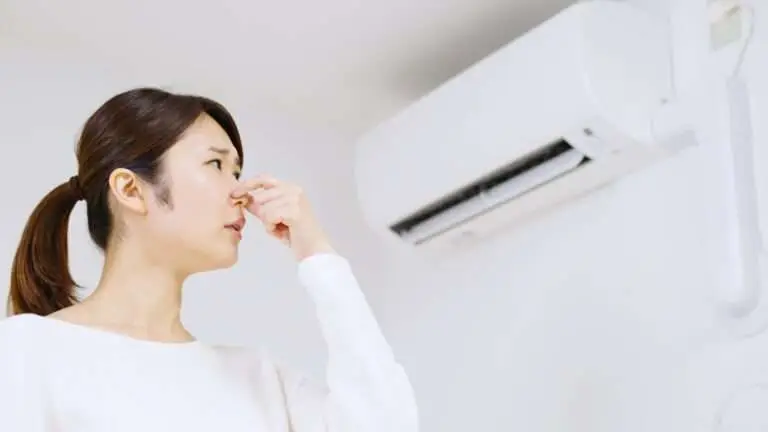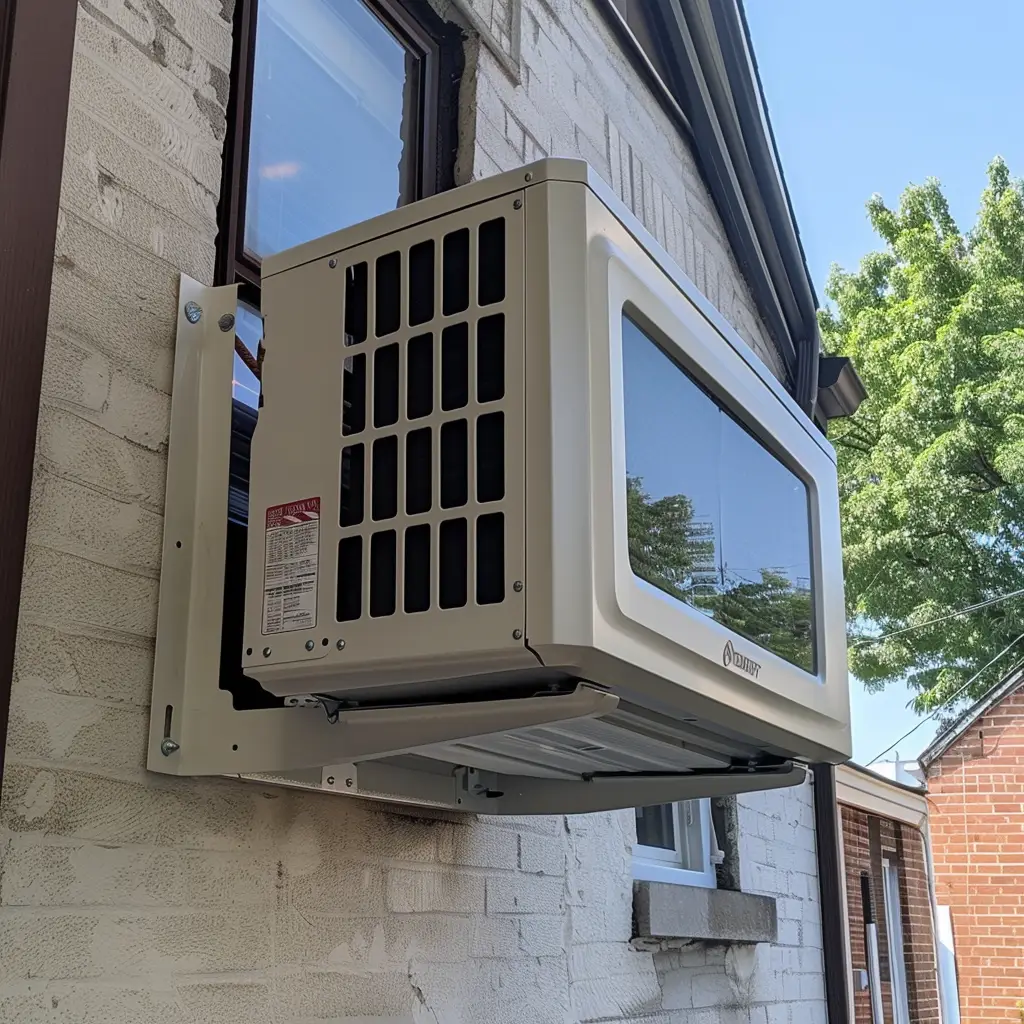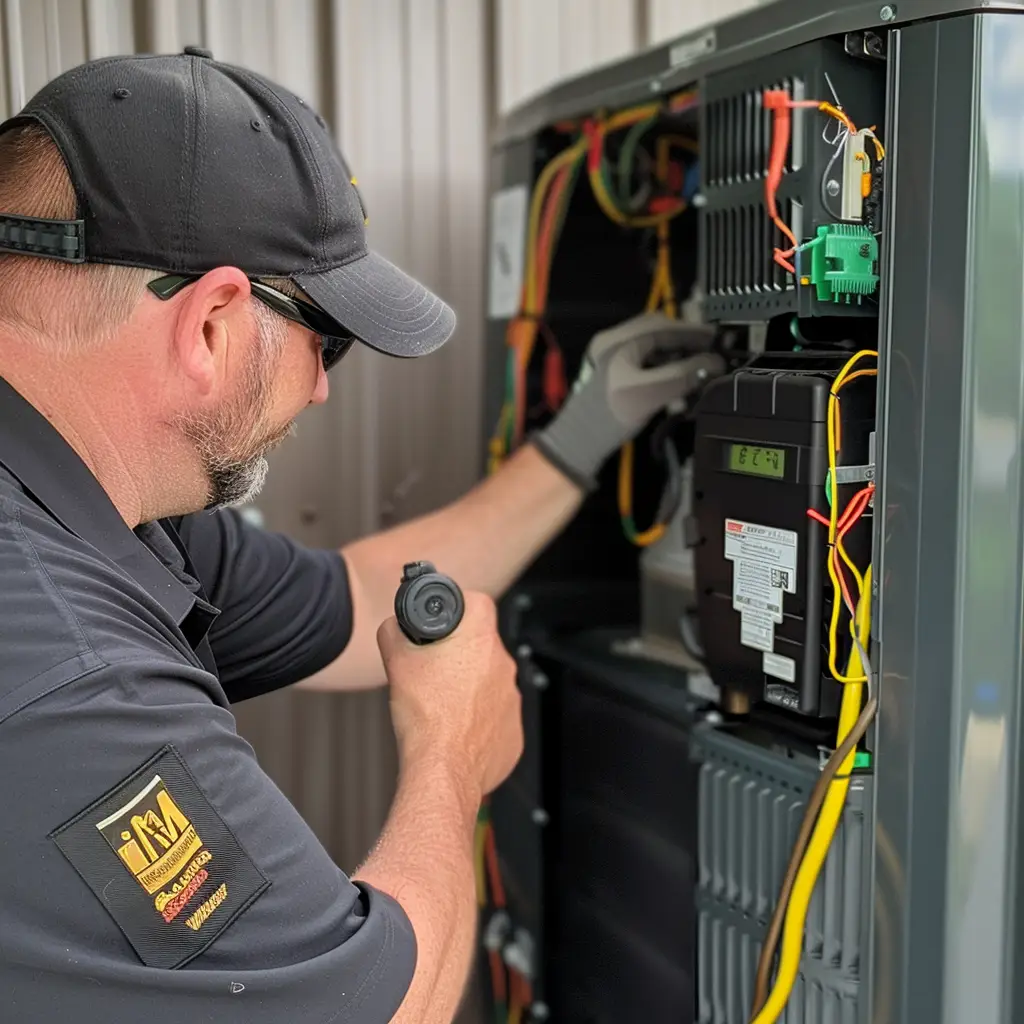Mold can grow on your air conditioner if it is not maintained regularly. The good news is that you can prevent this by regularly cleaning or replacing your air conditioner’s filter.
Mold can cause a range of health problems, including respiratory issues, allergies.
In this blog post, we will discuss how to tell if your air conditioner has mold and what steps you can take to address the issue.
Signs of Mold in Your Air Conditioner
There are a few signs that you can look for to determine whether your air conditioner has mold. These include:
- Visible mold: If you notice visible mold growth on the air conditioner or its components, it is likely that the system has a mold problem. This may appear as a black, green, or white growth on the surface of the air conditioner.
- Musty odors: A musty or mildew-like odor can be a sign of mold growth in your air conditioner. If you notice this type of odor when the system is running, it may be worth investigating further.
- Excessive moisture: Mold typically grows in damp or humid environments. If you notice excess moisture around your air conditioner or on its components, it could be a sign of a mold problem.
- Health symptoms: If you or someone in your household experiences unexplained health symptoms, such as respiratory issues or allergies, when the air conditioner is running, it could be a sign of mold in the system.
Steps to Take If You Suspect Mold in Your Air Conditioner
If you suspect that your air conditioner has mold, there are a few steps you can take to address the issue:
- Turn off the air conditioner: If you notice any of the signs of mold in your air conditioner, the first thing you should do is turn off the system. This will help prevent the mold from spreading and minimize the potential health risks.
- Ventilate the area: Open windows and doors to allow fresh air to circulate in the room where the air conditioner is located. This will help dissipate any mold spores that may be present in the air.
- Clean the air conditioner: If the mold growth is minor, you may be able to clean it yourself using a mixture of water and vinegar. Be sure to wear protective gear, such as gloves and a mask, when cleaning the system. If the mold growth is extensive or you are not comfortable cleaning it yourself, it is best to call a professional to handle the task.
- Dry the air conditioner: After cleaning the air conditioner, be sure to dry it thoroughly to prevent the growth of more mold. Use a clean cloth to wipe down the system and its components.
- Fix any water leaks: If the air conditioner has a water leak, it is important to fix it as soon as possible to prevent further mold growth. A professional HVAC technician can help identify the source of the leak and repair it.
How to Prevent Mold in Your Air Conditioner
Mold in an AC unit can be a serious problem that can affect the efficiency of the system and the health of the occupants of the building. Here are a few steps you can take to prevent mold in your AC unit:
- Keep the AC unit clean: Regularly cleaning the AC unit and its components can help prevent mold growth. Be sure to remove any visible dirt or debris from the unit and clean the air filters on a regular basis.
- Fix water leaks: Mold is more likely to grow in damp or humid environments. If your AC unit has a water leak, it is important to fix it as soon as possible to prevent mold growth.
- Use a dehumidifier: A dehumidifier can help reduce the humidity in your home, which can help prevent mold growth in your AC unit.
- Replace the air filters: Dirty air filters can restrict airflow and cause moisture to build up in the AC unit, which can lead to mold growth. Be sure to replace the air filters on a regular basis to keep the system running smoothly and prevent mold growth.
- Schedule regular maintenance: Regular maintenance can help prevent mold growth in your AC unit. During maintenance, a technician can inspect the unit for any issues that could lead to mold growth, such as water leaks or dirty components.
By following these steps, you can help prevent mold growth in your AC unit and ensure that it is running efficiently and effectively.
If you suspect that your air conditioner has mold, be sure to turn off the system, ventilate the area, clean the air conditioner, dry the system, and fix any water leaks as needed. If you are not comfortable cleaning the system yourself or the mold growth is extensive, it is best to call a professional to handle the task.
Frequently Asked Questions About Mold In Air Conditioners
Is it dangerous to have mold in an AC unit?
Mold in an AC unit can be dangerous as it can release mold spores into the air, which can be inhaled and cause health problems, such as respiratory issues, allergies, and other health problems. It is important to address mold growth in an AC unit promptly to protect the health of the occupants of the building.:
Can I clean mold from my AC unit myself?
If the mold growth in your AC unit is minor, you may be able to clean it yourself using a mixture of water and vinegar. Be sure to wear protective gear, such as gloves and a mask, when cleaning the system. If the mold growth is extensive or you are not comfortable cleaning it yourself, it is best to call a professional to handle the task.
Will my AC unit still work if it has mold in it?
It is possible for an AC unit with mold to continue to work, but it may not be as efficient as it should be. Mold can obstruct airflow and interfere with the operation of the system, which can cause it to work harder and use more energy. If you notice any signs of mold in your AC unit, it is a good idea to address the issue promptly to ensure that it is functioning properly.
Can mold in an AC unit be covered by insurance?
Whether or not mold in an AC unit is covered by insurance will depend on the specific terms of your insurance policy. It is a good idea to review your policy or contact your insurance company to determine if mold in an AC unit is covered.
If you suspect mold in your air conditioner and need more guidance, check out this video by John Daniels





